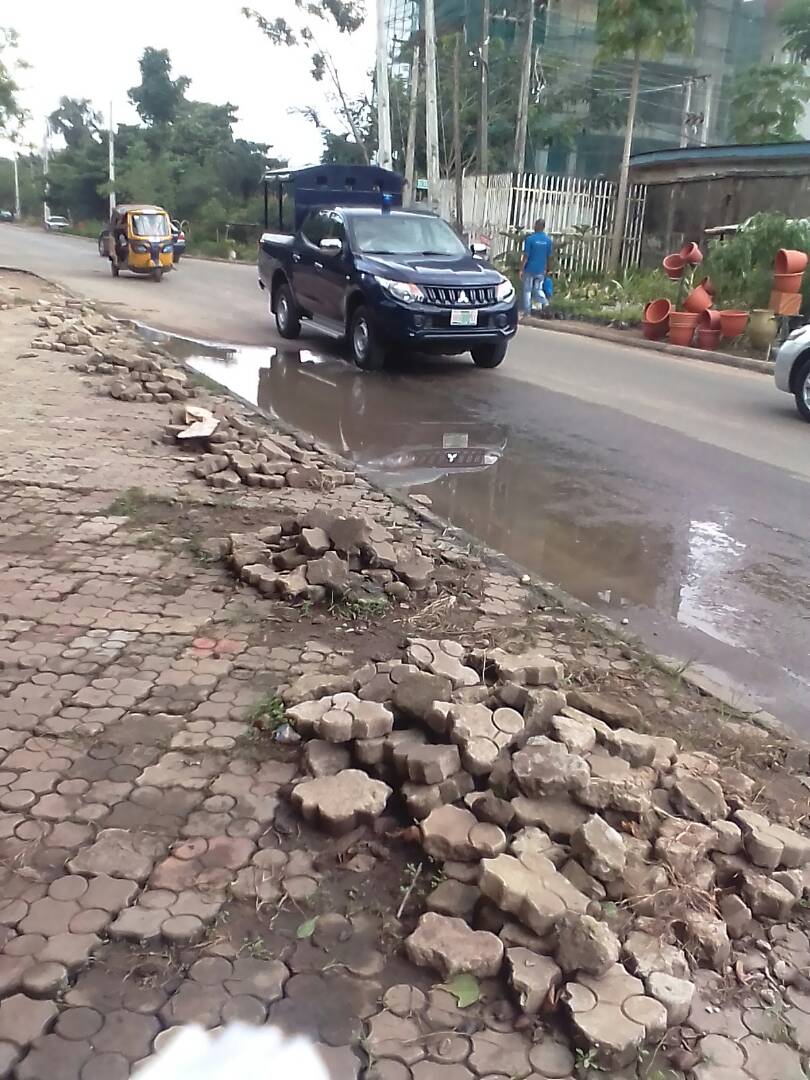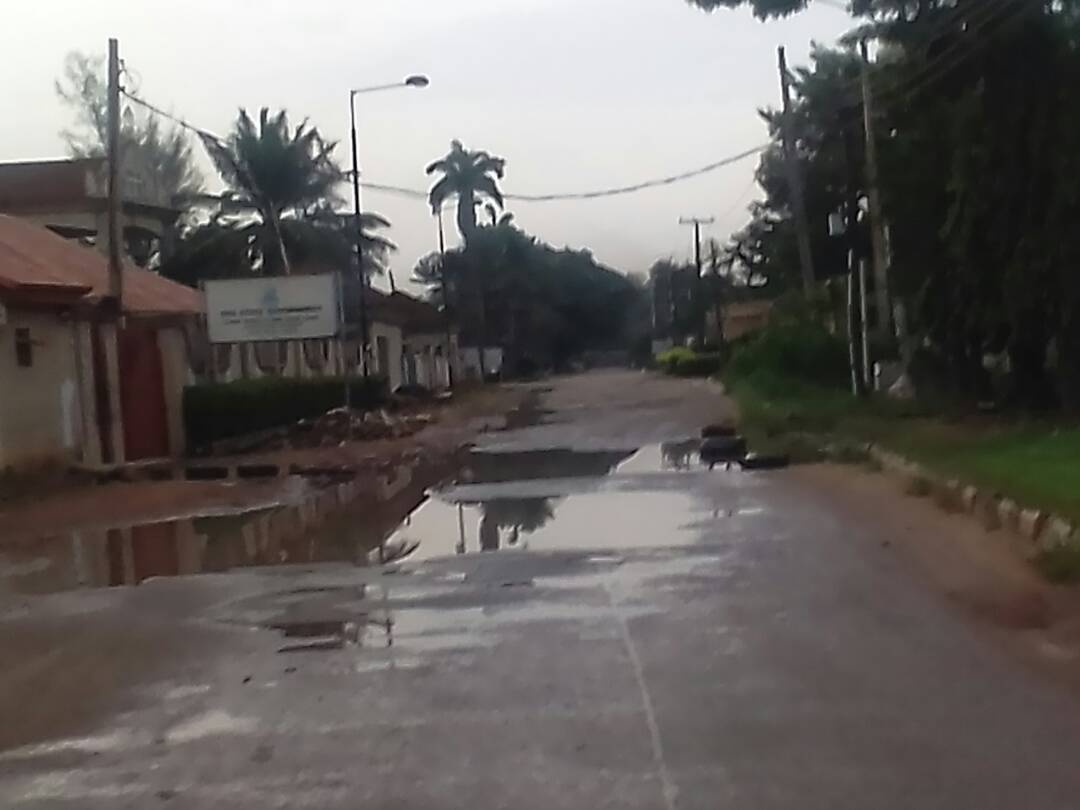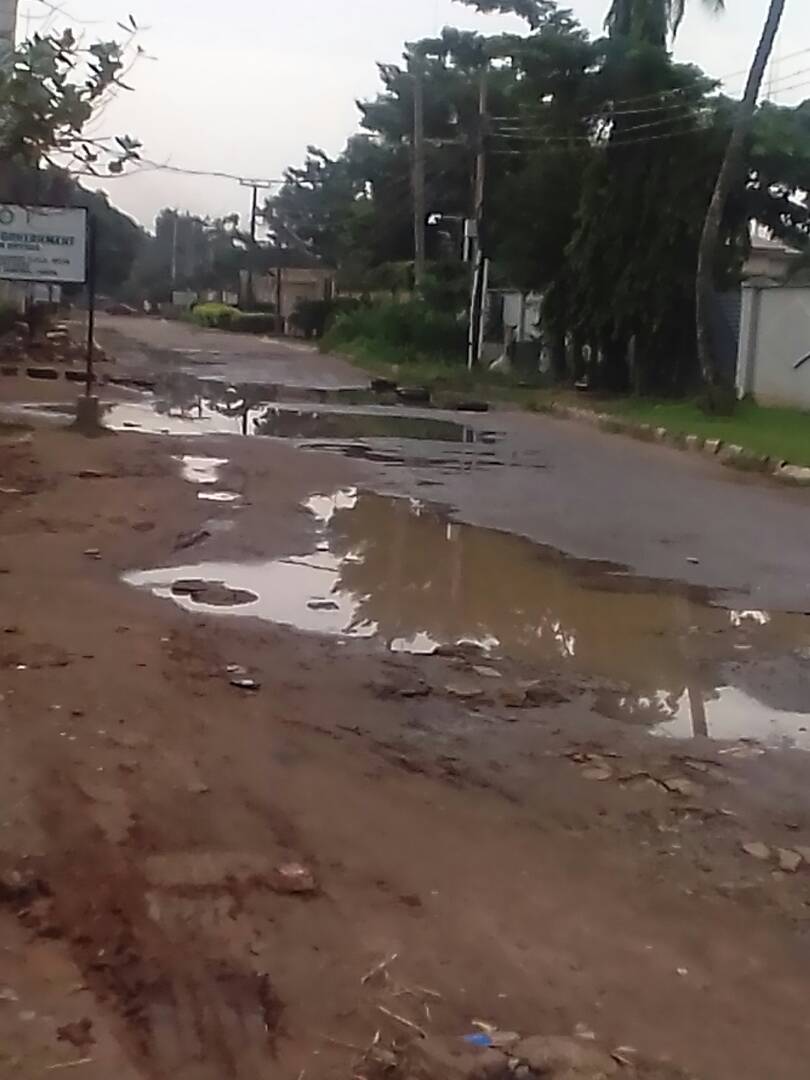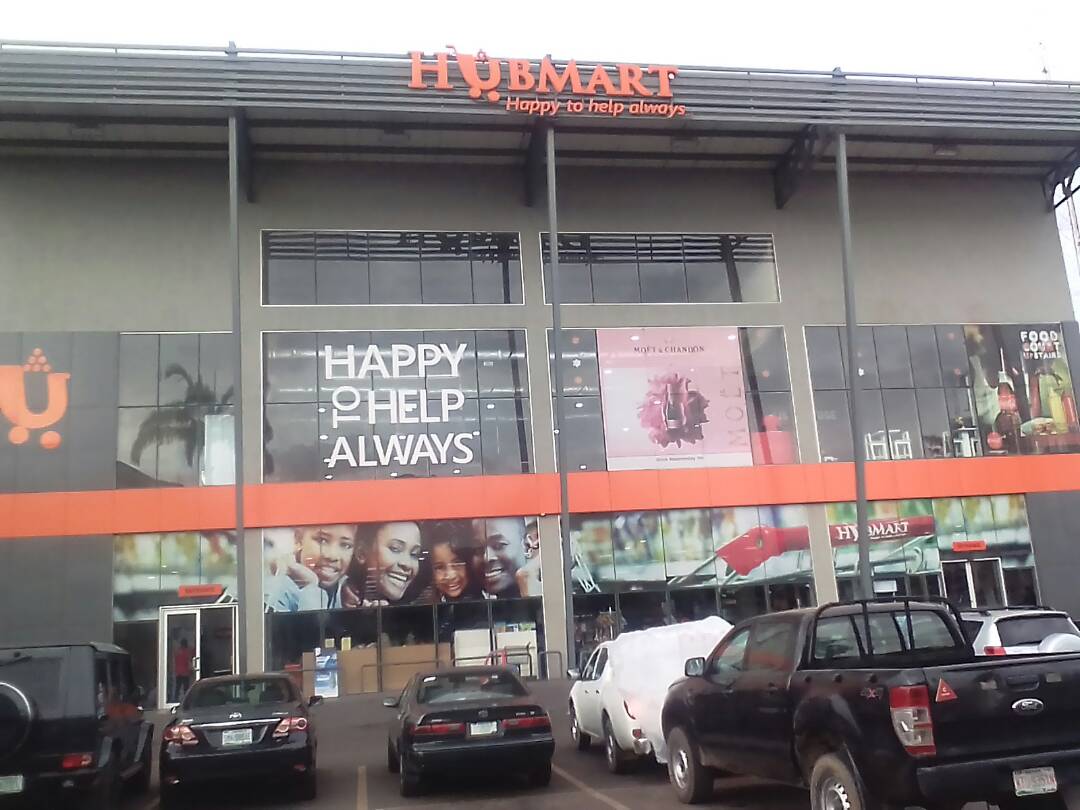Ikeja GRA was once Lagos’s alternative Ikoyi. In fact, many say when the Federal Government controlled Ikoyi, the Lagos State Government guided Ikeja GRA jealously. Like Ikoyi, it had its own Golf Club, separated from its Lagos Country Club, Ikeja; and the latter was the equivalent of Ikoyi Club. It was fully residential at the beginning, but today it has dual usage, commercial and residential, with the state government making a direct intervention some years ago to designate streets such as Isaac John, Joel Ogunnaike, Oba Akinjobi and a couple of others as open for commercial use. It was about right, investment was moving in its direction and people were flouting the existing law at the time that prohibited such usage. Things have rolled on quite a bit. But as they have rolled on, it appears they are also falling apart. CHUKWUEMEKA OBIOMA & TEMITAYO AYETOTO went to take a good look at the state of Lagos’s preeminent GRA, Ikeja and found the government wanting by way of neglecting what is potentially a cash cow, if only it could bring a little focus back on it.
An airstream of burgeoning investment interest has been blowing across one of Lagos State’s highbrow mixed property areas, the Government Reserved Area (GRA), Ikeja, where its opening up by the state government a few years ago for some commercial use has turned it into an emergent hospitality hub for hotels with potential for some tourism infusions. It is also potentially a media and entertainment hub, which if the state government were serious about it, could be deliberately made so, in the form that the United Kingdom has made of Salford in Greater Manchester, England.
The potential for this already exists in that this is an area with arguably the highest concentration of communications firms – Public Relations and advertising – in the state. And they are some of the best and finest too, led by what was once the Troyka Group, founded by the phenomenal Biodun Sobanjo better known for Insight Communications.
In spite of its potentials, and its current attraction of huge investments in hospitality, property, shopping malls, communication, media and entertainment companies, as well as other businesses, all appears not to be well with this special prime real estate part of the state because of what business owners, residents describe as the abandonment by the government of an area with a rich background of history and which once housed its governors and deputy governors, before they began to choose to go be with the more privileged big boys and big girls, driving across the 11.8 kilometres stretch of bridge known as the Third Mainland Bridge to do so. The state government appears to passively look on failing to encourage the growing attraction with requisite enablement.
Stakeholders’ prospect for what has transformed from a simple residential arena with moderate population, to a beehive of sophisticated real estate investment destination is now unfortunately threatened by the absence of certain social infrastructure.
The high-end region of the state’s capital was originally modeled as an interconnected, sanitary and serene space with tasteful decoration of natural greenery.
It was the choicest and remains one of the best spots for top political class and affluent individuals who crave to establish premium and cozy living atmosphere on the mainland, away from their rather much more boisterous, loud and noisy neighbours across the bridge on the island.
It has once been home to the Lagos State House, situated on Isaac John Street, now a commercial avenue mapped out under the Babatunde Fashola administration; some state officials’ residences, including the Deputy Speaker, Lagos House of Assembly, Funmilayo Tejuosho; South-west states’ liaison offices, including Ekiti, Ogun, Osun, Oyo and Ondo and some federal government parastatals such as the National Pension Commission, southwest zone, among others.
More recently it has grown to become the new haven of the hospitality industry with international players like Protea, Radison blu, Shoregates and Casa Millie raising the standard and the stakes to be there.
Big supermarkets, restaurants, media, public relations and advertising agencies also constitute the growing corporate army extending their footprints within the GRA.
But far bigger is the quantum of investments streaming into real estate development.
In the last 15 years, there have been significant changes to property ownership as well as the physical planning regulations. The federal government, during former President Olusegun Obasanjo’s reign, sold off its property in the location and that of the Nigeria Airways as part of its liquidation process. This resulted in the transfer of ownership of large acreages of prime land to private individuals and bodies.
Upon the state releasing an approval order for the reserved area in 2010, the density surged, giving birth to multiple commercial high streets.
Dele Fakoya, an experienced real estate manager at Integrity Properties has seen development rise by 400 percent from the status quo in the 70s, on high demand for residential and commercial properties.
“There is a departure from what the properties were originally designed to look like. The properties in the ‘70s and early ‘80s were designed to be just a bungalow sitting on over 1,000 square meters of land with a lot of green area. You will find in most cases that this 1,000 square meters, as the case may be, have now been divided into smaller plots like 400 square meters or more, invariably aiding influx of people into the GRA. For instance, if we didn’t have more than a thousand properties in the GRA then, now we have about 5,000 to 10,000,” he said.
The offshoot of this departure, invariably, has been increased need for social infrastructure, including roads, standard drainage systems, street lights and traffic navigators among others. And this is where the GRA has suffered.
Yet, the state has been lax in keeping up with the pace of this development. Observers of the scenery of the GRA could easily draw the picture of derelict buildings and sites begging for repairs.
Though the road on which the DSTV office is situated is seemingly flawless, the evidence of well constructed roads whose asphalt date back to the 1970s, from Country Club to Guarantee Trust Bank on Bank Anthony Way, Old Kingsway towards DSTV office, Ladipo to Sogunle, Oduduwa Way, Works Road, Ladipo Bateye and Oba Akinjobi among others, drainages appear to be scarce like the proverbial essential commodity era of the first emergence of Muhammadu Buhari, as a military head of government.
Most corporate tenants incontinently expand their budget to include water pumping devices to effectively prepare ahead of the water invasion, courtesy of lack of drainages. Some roads were in bad shape during business a.m.’s investigation across the geographical area. Only Harold Shodipo linking Oba Oladejobi had some form of road grading and reconstruction work going on, an exercise which is said to be sponsored by the state government.
Similarly, many have had to take up the responsibility of building their own drainages, constructing their own roads, fixing street gates, installing street lights and in fact providing their own security.
Fakoya who faulted the government for the negligence which has left property owners with a huge burden cautioned that investments could be dissuaded if the issues are not addressed.
Already, billions of dollars worth of investments currently sit within the estate as average land price hovers around N100 million. Some duplex structures are pegged at between N200 million and N400 million, while the least of apartment leasing begins at N2.5 million for 2-bedroom.
This nature of investment, Fakoya warns, is at risk if the government fails to protect the environment. The absence of drainage systems and good roads, he noted, has particularly forced stakeholders to resort to using septic tanks to drive water flow down the earth.
“We designed a deep leech kind of soakaway system, whereby water goes right round the perimeter fence to water the garden. That is why all year round you find that our garden is green,” he said.
The dearth of these basic amenities is also having subtle negative impact on sprouting businesses as some properties suffer devaluation.
Ikechukwu Madukwe, the executive partner, HM Properties is one of the players whose business has been negatively impacted by the fact that many of the roads surrounding the GRA were worn out and weakened from flooding.
“The problem of a flood, definitely affects properties in this area. Although the GRA has roads, apart from the Isaac John and Joel Ogunaike area, others are old and depleted. If we have better infrastructure, it will aid our business. There is also need for improvement in the security,” he said.
Business owners, who spoke to business a.m., however, hold the view that the government could also increase its revenue stakes from the GRA, if it paid the same attention given to the commercial centers of Isaac John and Joel Ogunaike to other parts of the GRA.
This situation also appears to have left a significant portion of properties derelict as residents would want to have value proportionate to the money paid for accommodation in any neighbourhood. Salvaging this unenviable situation would undoubtedly improve the economic significance of the GRA.
Watchers of events say the government must harness the economic potentials the reserved area has to give the state’s reputation a boost that is urgently required to properly position Lagos as a mega city with a push for a smart city status, which it currently lays claim to. The pathetic condition of this reserved area of the metropolitan city, calls for urgent measures that will, indeed, help to project the state government’s leadership in public administration, across the country, an attribute it earnestly covets.
Since real estate investments, like every other business, are bound to thrive in an environment where the necessary infrastructure is in place, experts believe that there will be an upsurge in the patronage of service apartments, which is currently at its lowest ebb in the GRA, if the state government tackles aggressively, the infrastructural challenge before it.
According to Fakoya: “There is an economic recession we are ailing from. The people who have cash keep their money and try to weigh the political stability of the country before making any investment decision. The recession affected the purchasing power for properties. But it will pick up, the moment the economy picks up. Both residential and commercial properties are on the rise. The moment social infrastructure is provided people will be more willing to pay charges.”
Even the food business in the area has to cope with the unpalatable fact that the atmosphere is tainted by pollution resulting from spillage of waste water, a situation which has seen flies swarming around some restaurants. And there is also massive dust pollution with some residents claiming the state government has not been circumspect with the old greenery of the GRA and is quick to cut down trees and is not encouraging residents to re-plant. “The government simply does not have an agenda on this score,” one resident told business a.m.
The rot in the GRA is a phenomenon many consider unacceptable, especially in an era where the world is moving at an unprecedented speed in terms of sophistication and advancements.
The state government must ensure roads are in good condition with good interconnectedness. Street lightings are a necessary part of security paraphernalia that must be conspicuously distributed on all the streets. The provision of drainage and waste management systems by the state government, analysts say, is a sine qua non. The apparent rot in the GRA must not linger if Lagos must continue to be seen as the trailblazer in achieving the developmental feat.
Story by Chukwuemeka Obioma & Temitayo Ayetoto








